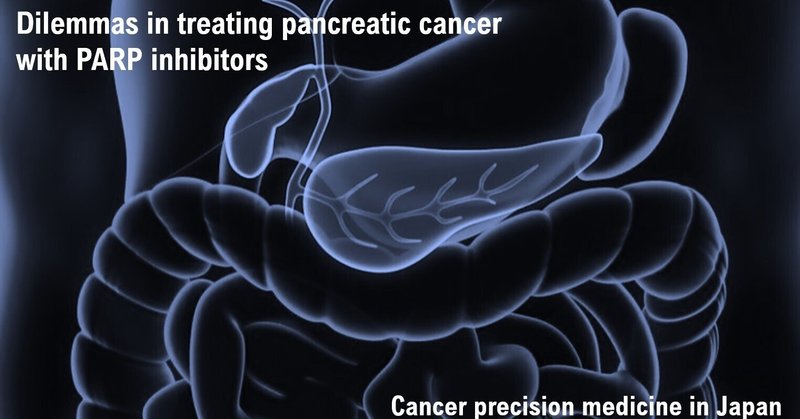
Status of germline BRCA pathogenic variants in advanced/recurrent pancreatic cancer in Japanese patients
Boursi et al compared outcomes of patients with BRCA1 vs BRCA2-related PDAC using 2 large data sets. The clinical research shows that in patients who were exposed to platinum, BRCA2 pathogenic variants (PVs) were associated with improved survival compared with BRCA1 PVs.
Boursi et al have stated that this study included 234 consecutively identified patients with germline BRCA (gBRCA) PVs and a diagnosis of PDAC (165 [70.5%] BRCA2; 69 [29.5%] BRCA1). Therefore, this study had limitations including the small subgroup of patients with BRCA1 PVs.
The treatment methods for a total of 3531 cases were examined using cancer genome panel examination (OncoGuideTM NCC oncopanel test (Riken genesis Co., Ltd. Japan): 813 cases and FoundationOne® CDx test (MF Inc. USA): 2,718 cases) in the cancer genomic medicine at Japanese national universities from December 2019 to September 2023. The Japanese Society for Medical Genetics considers 55 genes (APC, BRCA1/2, CDH1, CDKN2A, CHEK2, etc.) to be causative genes for hereditary cancer. Unlike the OncoGuideTM NCC Oncopanel test, the FoundationOne® CDx test does not examine for germline genes using hematopoietic cells collected from blood. Therefore, hereditary cancer is suspected in cases in which the FoundationOne® CDx test detects pathogenic variants (PVs) with variant allele fraction (VAF) values of 40% or higher in these 55 genes.
To date, cancer genome gene panel testing has been conducted to investigate treatment methods for 509 cases of advanced/recurrent pancreatic cancer. Of the 509 cases of advanced/recurrent pancreatic cancer tested using cancer genome gene panel testing, 68 cases were diagnosed with pancreatic cancer harboring germline BRCA 2 pathogenic variants. In cancer genomic medicine using cancer genome gene panel testing, we have never detected any cases of pancreatic cancer with gBRCA 1 PVs. As reported by Boursi et al, the number of pancreatic cancer cases with gBRCA 1 PVs is very low compared to gBRCA 2 PVs in Japanese pancreatic cancer patients. In other words, it is clear that gBRCA PVs are involved in the development of pancreatic cancer. PARP inhibitors (olaparib, niraparib) are administered to patients with advanced/recurrent pancreatic cancer found to have gBRCA PVs, but the efficacy is not high. Further clinical trials must be conducted to establish treatments for advanced and recurrent pancreatic cancer.
We do not have potential conflicts of interest.
published in JAMA Network in December 10, 2023. by Kyoto@takumaH
Doctor specializing in cancer genome medicine
この記事が気に入ったらサポートをしてみませんか?
